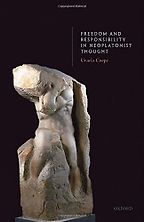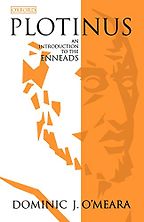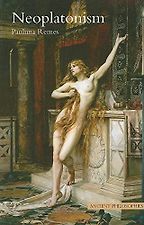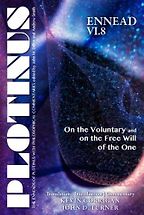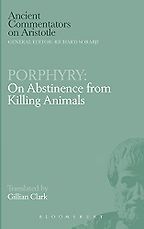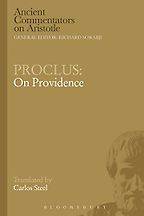
Books by Ursula Coope
Ursula Coope is Professor of Ancient Philosophy at the University of Oxford.
Freedom and Responsibility in Neoplatonist Thought
by Ursula Coope
Q: You’ve written a book about Neoplatonism. What’s that about?
Ursula Coope: My book is called Freedom and Responsibility in Neoplatonist Thought. I explain how the kinds of questions the Neoplatonists discuss arise out of earlier thinking about freedom and responsibility. Often these questions aren’t quite the same as the questions that naturally occur to us, although they overlap in various ways with modern concerns.
The Neoplatonists have a very demanding notion of freedom. Something that is free must be unhindered in its pursuit of the good. To be free one must be one’s own master, not dominated by anything else. The Neoplatonists argue that only something that is perfectly good can be free in this sense. This raises a question about whether anything other than their highest divinity, the One, can really be free, and it also raises questions about responsibility. If being free involves being perfect, then normal human intentional action, especially bad action, doesn’t count as free action. How, then, can it be right to hold us responsible for what we do when we act badly? A similar question arises for Plato, given his claim that no one voluntarily does wrong.
Neoplatonist answers to these questions often invoke notions of self-reflexivity. For instance, they argue that being free involves being self-determining and self-knowing, and they argue that human beings are responsible for what they do because they have a capacity for self-reflection. These arguments raise further questions. Is self-determination really possible, and if so, in what sense? What is it to know oneself? Rationality is often thought to distinguish human beings from other animals. Is there some important connection between being rational and being self-reflective? And if so, does this explain why humans are responsible for their actions in a way that other animals are not? Those are the sorts of questions I discuss in my book.
Q. Those questions are questions at the heart of the current freewill debates, actually.
Ursula Coope: Yes. I think there are interesting connections with modern freewill debates – especially with those modern discussions that emphasise the ways in which one’s freedom can be compromised by things that are internal to oneself. But there are also important differences, partly because the Neoplatonists are approaching these questions from such a different philosophical background. For instance, the idea that being embodied is an impediment to freedom is alien to most modern discussions.
Interviews with Ursula Coope
-

1
Plotinus: An Introduction to the Enneads
by Dominic O’Meara -

2
Neoplatonism
by Pauliina Remes -

3
Ennead VI.8: On the Voluntary and on the Free Will of the One
by Plotinus, Kevin Corrigan, and John D. Turner -

4
On Abstinence from Killing Animals
Porphyry and Gillian Clark (translator) -

5
On Providence
by Proclus and Carlos Steel (translator)
The best books on Neoplatonism, recommended by Ursula Coope
The best books on Neoplatonism, recommended by Ursula Coope
To the modern reader, Neoplatonist thinkers can seem quite alien, but engaging with them helps us to understand ourselves and modern philosophy better, says Ursula Coope, Professor of Ancient Philosophy at the University of Oxford. She recommends five books to introduce readers to Neoplatonist philosophy, starting with Plotinus in the 3rd century.
